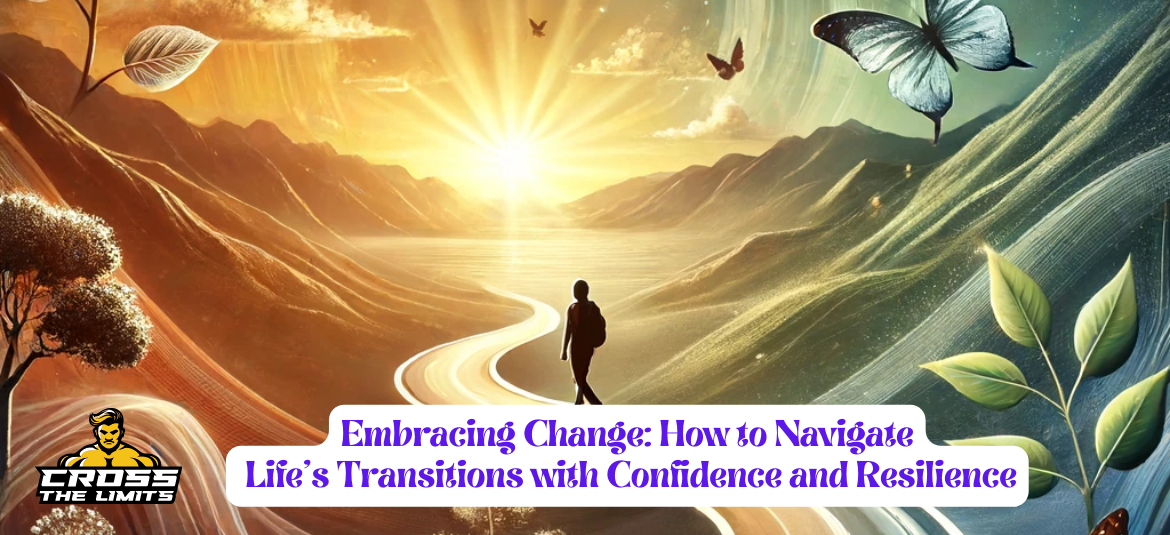Change is an inevitable part of life. It can come in many forms, from small shifts in routine to major life-altering events. Understanding the nature of change is essential for navigating its challenges and embracing its opportunities. Change can be exciting and daunting, often involving stepping into the unknown and leaving behind familiar comforts. It can bring about feelings of uncertainty, fear, and resistance, but it can also lead to personal growth, new experiences, and fresh perspectives.
Change is a natural part of the human experience, and it is essential to recognize that it is not always within our control. External factors such as societal shifts, technological advancements, and global events can all contribute to change in our lives. Internal factors such as personal growth, evolving values, and shifting priorities can also drive change. By understanding that change is a constant and inevitable force, we can learn to adapt and thrive in uncertainty.
Developing a Growth Mindset
Developing a growth mindset is crucial for embracing change and navigating its challenges. A growth mindset believes in one’s ability to learn, grow, and adapt to new circumstances. It involves viewing challenges as opportunities for growth, embracing failure as a stepping stone to success, and seeking new experiences to expand one’s knowledge and skills. Cultivating a growth mindset can help individuals approach change with resilience, optimism, and a willingness to learn.
One way to develop a growth mindset is by reframing challenges as personal and professional development opportunities. Instead of viewing obstacles as roadblocks, individuals with a growth mindset see them as chances to learn, problem-solve, and grow stronger. They are open to feedback, willing to take risks, and eager to explore new possibilities. By adopting this mindset, individuals can build the confidence and resilience to navigate change gracefully and determinedly.
Building Resilience in the Face of Uncertainty
Building resilience is essential for navigating the uncertainties that come with change. Resilience is the ability to bounce back from adversity, cope with stress, and adapt to new circumstances. It involves developing emotional strength, mental fortitude, and a sense of purpose to help individuals weather their ups and downs. Resilience is not about avoiding or denying difficult emotions; it is about facing them head-on, learning from them, and using them as fuel for personal growth.
One way to build resilience is by cultivating self-awareness and emotional intelligence. This involves recognizing and understanding one’s thoughts, feelings, and reactions to change. By developing a deeper understanding of oneself, individuals can better manage their emotions, cope with stress, and maintain a sense of balance during times of transition. Additionally, building a solid support network of friends, family, and mentors can provide a sense of connection and belonging that bolsters resilience in uncertain times.
Cultivating Adaptability and Flexibility
Cultivating adaptability and flexibility is essential for thriving in an ever-changing world. Adaptability involves:
- Being open to new ideas.
- Embracing change.
- Adjusting one’s approach to fit new circumstances.
Flexibility involves:
- Pivoting quickly.
- Making adjustments on the fly.
- Remaining open-minded in the face of uncertainty.
Individuals can navigate change with grace, creativity, and a willingness to explore new possibilities by cultivating these qualities.
One way to cultivate adaptability and flexibility is to practice mindfulness and stay present in the moment. Focusing on the here and now can help individuals respond to changing circumstances with clarity and intention. Additionally, seeking new experiences, learning new skills, and exposing oneself to diverse perspectives can help individuals expand their comfort zones and become more adaptable in the face of change.
Embracing New Opportunities
Embracing new opportunities is essential to navigating change with confidence and optimism. Change often brings about new possibilities for personal and professional growth, and remaining open to these opportunities is essential. Embracing new opportunities involves:
- Taking calculated risks.
- Stepping outside of one’s comfort zone.
- Being willing to explore uncharted territory.
By doing so, individuals can discover new passions, develop new skills, and forge new connections that can enrich their lives meaningfully.
One way to embrace new opportunities is by maintaining a sense of curiosity and a willingness to try new things. By approaching change with an open mind and a sense of adventure, individuals can uncover hidden talents, discover new passions, and find fulfilment in unexpected places. Additionally, seeking mentors, networking with like-minded individuals, and staying attuned to emerging trends can help individuals identify and seize new opportunities for personal and professional growth.
Seeking Support and Connection
Seeking support and connection is crucial for navigating change with resilience and grace. Change can be a lonely and isolating experience, but having a solid support network can provide comfort, guidance, and a sense of belonging during times of transition. Building connections with others who have experienced similar changes can provide valuable insight and perspective to help individuals navigate their journeys more easily.
One way to seek support and connection is by reaching out to friends, family members, or colleagues who have undergone similar changes. By sharing experiences, seeking advice, and offering mutual support, individuals can gain strength from their connections and feel less alone in their struggles. Additionally, seeking professional support from therapists, coaches, or mentors can provide valuable guidance and encouragement to help individuals navigate change with greater confidence and resilience.
Celebrating Personal Growth and Transformation
Celebrating personal growth and transformation is essential to embracing change with gratitude and optimism. Change often brings about opportunities for self-discovery, personal development, and transformational experiences that can profoundly enrich one’s life. By acknowledging and celebrating these moments of growth, individuals can cultivate a sense of pride, gratitude, and resilience to help them navigate future changes more confidently.
One way to celebrate personal growth and transformation is by reflecting on one’s journey and acknowledging progress. By recognizing the challenges that have been overcome, the lessons that have been learned, and the personal growth that has been achieved, individuals can cultivate a sense of pride in their resilience and adaptability. Additionally, expressing gratitude for the support of friends, family members, mentors, or colleagues who have helped along the way can provide a sense of connection and appreciation that can bolster one’s resilience in the face of future changes.
In conclusion, understanding the nature of change is essential for navigating its challenges and embracing its opportunities. Developing a growth mindset, building resilience in the face of uncertainty, cultivating adaptability and flexibility, embracing new opportunities, seeking support and connection, and celebrating personal growth and transformation are essential for thriving in an ever-changing world. Individuals can navigate life’s transitions with confidence and optimism by approaching change with openness, curiosity, resilience, and gratitude.















